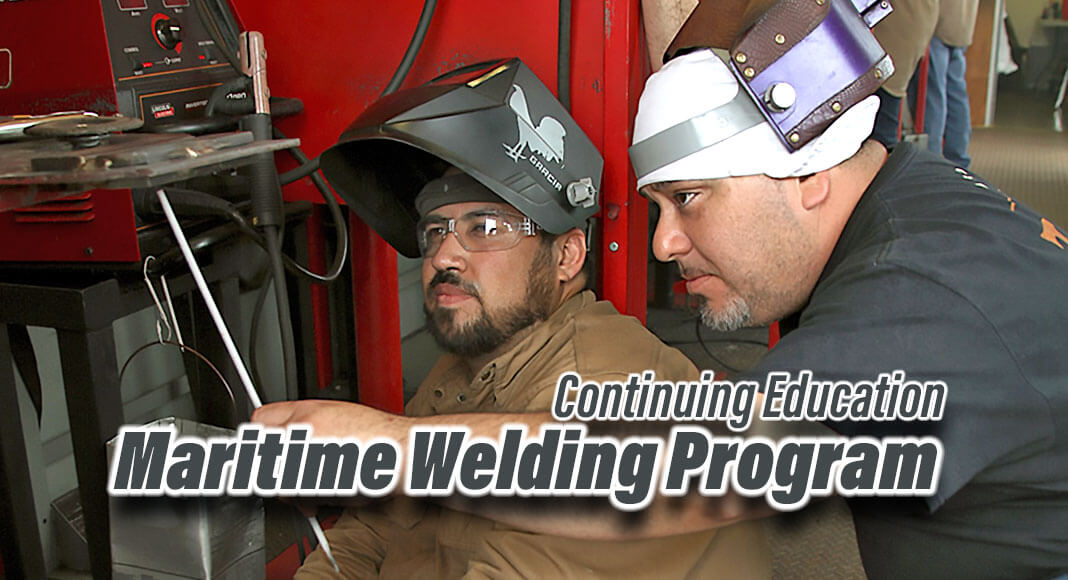
Texas Border Business
HARLINGEN, Texas – The Texas State Technical College Workforce Training and Continuing Education Maritime Welding program has helped train students since its inception in 2021.
Individuals learn tough technical concepts during an eight-week period to prepare for the Texas workforce, and to alleviate concerns experienced in the welding industry. Students will learn components such as oxy-fuel cutting, air carbon arc gouging, plasma cutting, base metal preparation, joint fit-up, and flat, horizontal, vertical and overhead welds.
Samuel Grimaldo, a Maritime Welding instructor, said TSTC has provided a solution in three areas.
“It has increased efficiency by introducing techniques and habits that reduce the time and effort required for welding,” he said. “The use of advanced safety equipment in training reduces the number of accidents and injuries in the workplace. Additionally, our program has created new job opportunities for welders — especially in offshore welding, shipbuilding and repair, which has helped to expand the welding industry.
Some of the students in the current cohort discussed how the program has enhanced their learning capabilities.
Matthew Andrade, of Harlingen, said he wanted to pursue a field that would lead to a great-paying career.
“I first tried welding in high school and I remember forging pieces together to make a project work,” he said. “As for this program, my skills have advanced greatly since I began with minimal knowledge. Grimaldo is a great instructor because he assists us with practical use in the classroom and in the booth. Now, I have a consistent vertical weld because I practiced by maintaining a rhythm and working against gravity. After I complete this program, I would love to enroll in the college’s Welding Technology program to elevate my skills more.”
Ollie Southard, an Arkansas native who now lives in Harlingen, said his first experience in welding was by helping his father.
“During my teenage years, I helped him install a 220-voltage outlet,” he said. “I found out about TSTC’s Maritime Welding program through word-of-mouth. This program has been enjoyable because of the hands-on training. I have learned about safety such as personal protection equipment, which helps to protect you at a high altitude. Other items consist of using safety goggles, being aware of other welders and the proper way to handle tools. It’s important to observe that any tool you will use has come to a complete stop. Otherwise a major injury can occur.”
Students will earn a Maritime Welding Level 1 certificate from the National Center for Construction Education and Research (NCCER) when they complete the program.
TSTC’s Workforce Training Maritime Welding program has created a skilled workforce of welders who are trained in advanced techniques and technologies and improve the quality of welds being performed, Grimaldo said.
For more information on the Maritime Welding program, visit tstc.edu/workforce/maritime-welding/.
For more information about TSTC, visit tstc.edu.














